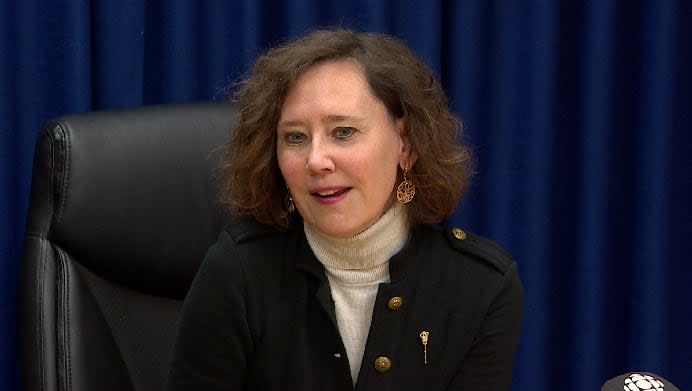New bail reform law and policing won't fix root causes of violent offenders, Sask. experts say

Justice experts are questioning how effective a new bail reform law will be at preventing violent reoffending in Saskatchewan, saying there needs to be more focus on the root causes of crime.
Bill C-48 came into effect on Jan. 4. The federal bill aims to make it harder for people accused of violent crimes to be released if they already have a history of serious and violent offences involving a weapon, and also in cases involving intimate partner violence.
The new law dictates that courts must consider an accused person's history of violent convictions when deciding on a release order.
It also reverses the onus onto an accused to demonstrate why they should be released, rather than it being on the Crown to demonstrate why they shouldn't. This new "reverse onus" system applies to people charged with a serious violent offence with a weapon if they were convicted in the last five years of a similar offence.
Speaking with host Leisha Grebinski on CBC's Blue Sky, Saskatchewan's Minister of Justice and Attorney General Bronwyn Eyre said the new reforms push back against changes made in 2019's Bill C-75, which moved the needle on bail releases in the other direction.
"[Bill C-75] established a principle of restraint which favoured release on bail at the quote 'earliest reasonable opportunity on the least onerous conditions,'" said Eyre.
She said this "catch and release default" from Bill C-75 led to a "pendulum switch too far" in the provinces.

Bronwyn Eyre is Saskatchewan's minister of justice and attorney general. (CBC)
Data from the RCMP shows Saskatchewan saw a 50 per cent increase in the number of homicides in the last five years. It also says 44 per cent of people charged with homicide were on conditions, bail, parole or probation.
Grebinski asked Eyre if there are enough supports in the correctional system to help rehabilitate individuals.
Eyre said there are "all number of supports" with an aim of addressing root causes.
"Clearly, despite all of that, we do have a problem, not only in Saskatchewan but across the country, with repeat violent offenders," she said.
Focus on root causes
Criminal lawyer and sexual violence researcher Cassandra Richardson said Bill C-48 doesn't address root causes of crime, particularly for domestic violence.
"Poverty, mental health, substance abuse, that's what really we need to look at," Richardson said.
Richardson said using reverse onus for people accused of intimate partner violence doesn't make communities safer. People in pre-trial detention don't get help with mental health, substance abuse, trauma and poverty, according to Richardson.
"I have concerns that Bill C-48 might just delay the next assault, it might not address the root causes," she said.
Rhonda Blackmore, the commanding officer of Saskatchewan RCMP, said reverse onus is a step forward, but root causes still need to be addressed.
"While we talk about crime and immediately people think of police and enforcement, it's not purely an enforcement solution, that's not the answer," said Blackmore.
"If people don't have those root causes or those core issues that are driving some of that propensity for violence, it's not going to change."
LISTEN | Blue Sky took a look at the new reforms and whether they will make Saskatchewan safer:
'Legislating people to a future of doom': former judge
Retired judge Gerald Morin said addictions, poverty and chronic unemployment are the major issues contributing to an over-representation of Indigenous people in the criminal justice system.
According to Statistics Canada, Indigenous people make up 28 per cent of the federal inmate population, but only 4.1 per cent of the overall Canadian population.
Morin grew up in Cumberland house and is a member of the Peter Ballantyne Cree Nation.
He was a Saskatchewan provincial court judge and paved the way for a Cree-speaking circuit court in Northern Saskatchewan.
Morin said a reverse won't make a difference on rehabilitation.
"We're finding money for enforcement, we're finding money for getting more of that, but we're not finding money to have real programming done in correctional centres within those time frames when people are sober and maybe want to get something out of what they're doing in jail," said Morin.
Morin also pointed to how a judge can't sentence someone to a rehab centre, because they're not designated as jails.
"People say, 'well, you can't legislate people to quit drinking.' Well, we seem to be legislating people to a future of doom by making sure they go to jail," said Morin.
"I don't know which is worse."


